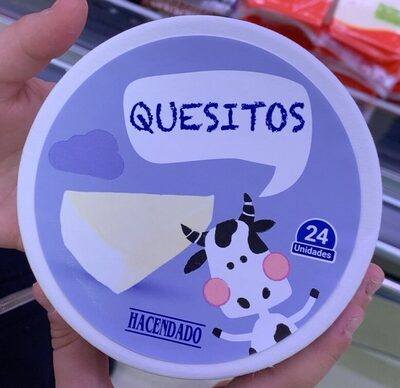
Barcode: 8480000524058
Quesitos
DOUBTFUL
📝 Reason: Some ingredients fall into a religious gray area. Their permissibility hinges on specific production methods not fully disclosed in available information.
🏷️ Category: Dairies, Fermented Foods, Fermented Milk Products, Cheeses, Fresh Cheeses, Pasteurized Cheeses, Melted Cheese
📄 Certificates: No Gluten, Green Dot, Es:Recicla Azul
Ingredients:
Details
Understanding the Halal Status of Quesitos
Quesitos are a popular cheese product enjoyed by many, but what is their Halal status? This question often arises among consumers, particularly in Muslim communities. In this post, we will explore the ingredients of Quesitos, their E-numbers, and the reasons behind their doubtful Halal status.
The Ingredients Breakdown
Quesitos are primarily made from the following ingredients:
- Rehydrated skimmed milk
- Cheese
- Butter
- Melting salts (polyphosphates, sodium phosphates, diphosphates, and sodium citrates)
- Skimmed milk powder
- Milk proteins
- Preservative (potassium sorbate)
- Salt
- Acidity regulator (citric acid)
- Natural flavor
Individual Ingredient Analysis
Let’s take a closer look at each ingredient’s permissibility in Islam:
- Rehydrated skimmed milk: This ingredient is permissible in Islam.
- Cheese: Cheese made from Halal milk is generally acceptable, thus permissible.
- Butter: As long as it is derived from Halal sources, butter is also permissible.
- Melting salts (polyphosphates, sodium phosphates): These are considered a grey area, as their permissibility can depend on the manufacturing process.
- Diphosphates: Permissible under Islamic dietary laws.
- Sodium citrates (E331): Also permissible, commonly used as additives.
- Skimmed milk powder: Permissible if Halal-certified.
- Milk proteins: These are generally acceptable.
- Potassium sorbate: This preservative is permissible.
- Salt: A universally accepted ingredient in Halal diets.
- Citric acid and natural flavor: Typically permissible, though details on sourcing may be necessary.
The Grey Area of Halal Verification
While many ingredients in Quesitos are permissible, the presence of melting salts raises concerns. The uncertainty comes from the lack of disclosed production methods for these ingredients, which can affect their Halal status. For Muslims, the determination of whether a product is Halal often hinges on the production process and the sourcing of all ingredients.
Certification Matters
Currently, Quesitos do not have a specific Halal certification, which further complicates their status. While they have certifications for other dietary concerns, such as No Gluten and Green Dot, these do not address Halal compliance.
Status Summary
The current Halal status of Quesitos can be described as DOUBTFUL. For consumers seeking to adhere to Islamic dietary laws, it is crucial to weigh the components and their sourcing when considering this product.
Conclusion
In summary, Quesitos present a mixed bag when it comes to Halal status. Although most of the ingredients align with Halal dietary laws, the uncertainty surrounding the melting salts casts doubt. For those who prioritize Halal food choices, it may be best to consult with manufacturers directly or consider alternative products with clear Halal certification.
Overall, the evolving landscape of food sourcing and production methods makes it imperative for consumers to stay informed and cautious, especially with products like Quesitos.
